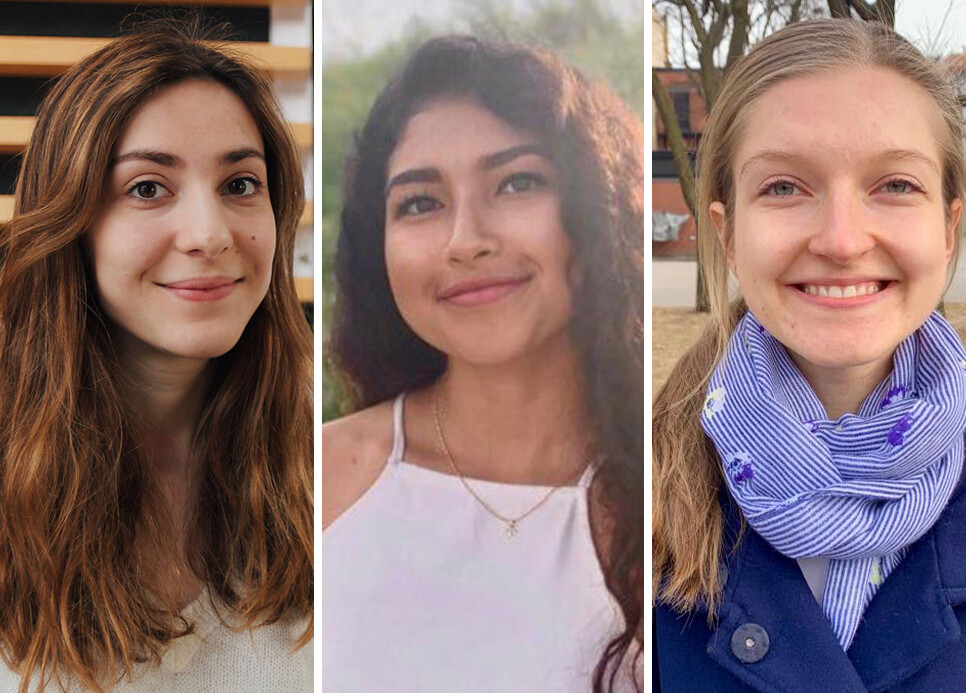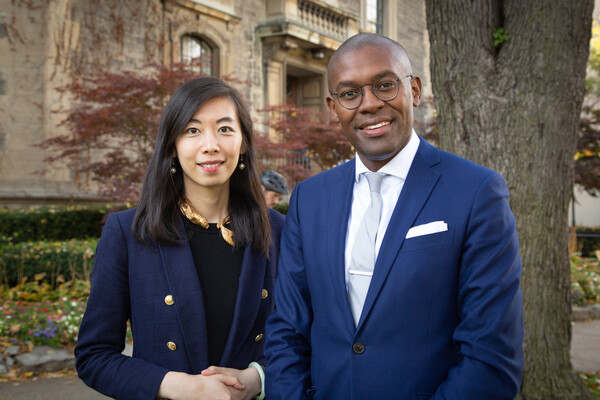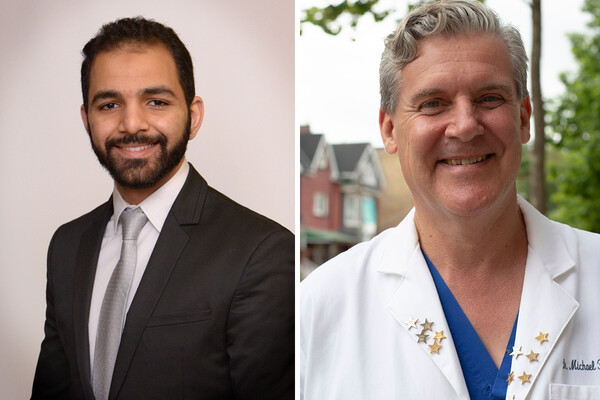Breadcrumbs
- Home
- MD/PhD Program
- News
- Faces of U of T Medicine: #FrancoMed
Faces of U of T Medicine: #FrancoMed

A group of MD students in the Temerty Faculty of Medicine is supporting learners across Canada working to strengthen their medical French language skills.
The University of Toronto Medical Communauté Francophone (UTMCF) is helping create an online educational platform called FrancoMed. The platform is expected to launch on the Association of Faculties of Medicine of Canada (AFMC) website in the next couple of months.
The team has contributed over 400 vocabulary terms, 10 papers with more than 50 multiple choice questions per section and 20 podcasts and videos to assist students in improving their French medical speaking and writing skills.
UTMCF members Melanie Elhafid, Tatiana Yeuchyk and Elya Quesnel recently told writer Erin Howe more about the initiative.
What is FrancoMed?
FrancoMed is a centralized online program for learning medical French. There are three main sections: medical vocabulary; written comprehension; and audio comprehension.
After completing all exercises and the associated quizzes, successful participants will receive a certificate from AFMC and U of T.
FrancoMed is open to all Canadian students, and will benefit people interested in using medical French as future physicians.
What inspired the creation of FrancoMed?
In Canada, more than 20 per cent of people speak French as a first language, and over one million people live in official language minority communities outside Québec. In many of these places, healthcare in French is limited or even absent, which can reduce quality and access to care, despite speaking an official language.
One targeted approach to address this gap in care is to invest in growing the number of French-speaking physicians across the country, starting in medical school.
In recent years, several resources have been made available to help learners improve their clinical French, from vocabulary lists and podcasts to videos of history-taking in French. But there wasn’t an organized program with targeted lessons and exercises in one place. This creates a serious challenge for a medical students and residents looking to balance their stringent program demands with a desire to build their French medical skills long term.
Who is helping make FrancoMed a reality?
It took a big team to make this happen! Our Temerty Medicine colleagues Kwasi Jnr Nkansah, Omar Ghabala, Rahna Rasouli, Rehona Zamani, Misha Dhuper, Clemence Ongolo Zogo and Alexi Gosset played an important role in the initiative. Armand Bahabi, a recent graduate of Polytechnique Montréal’s engineering program, recorded the podcasts and designed the website. FrancoMed was also developed in collaboration with Ike Okafor, Temerty Medicine’s senior officer, service learning and diversity outreach and Aida Banghoura, project coordinator at AFMC. We also had help from the University of Ottawa’s office of Francophone Affairs.
Are there many French speakers in the Temerty MD Program? Has this helped the development of FrancoMed or helped highlight the importance of creating this kind of support?
There are many students, both current and past, who are Francophone or Francophile in the Temerty Medicine community. The UTMCF organizes opportunities for students to practice their French in the context of medicine. These events usually attract 10 to 15 students from the first two years of the program. More broadly, there are hundreds of French-speaking medical students studying at Anglophone faculties of medicine across the country.
What is your hope for FrancoMed?
We’re extremely excited that FrancoMed will be available on the AFMC website, nationwide, and to any students in medicine and the healthcare professions who want to improve their French medical skills.
We expect to launch FrancoMed in the next couple of months. Our biggest hope is that FrancoMed becomes a well-known and established resource for anyone interested in growing their French listening and reading comprehension, as well as their French medical vocabulary. Ultimately, this would allow FrancoMed to become a continuously growing resource to support medical learners across Canada and improve access and quality of care for francophone minority populations in Canada.
What’s next for FrancoMed?
In the future, we’re excited to set up a committee of students who will be in charge of FrancoMed together with AFMC. This committee will be open to any interested student from faculties of medicine across Canada. It will be an exceptional opportunity for Francophone and Francophile future physicians to collaborate on a national scale.
What ties, or past experiences, have the members of FrancoMed have had in French prior to pursuing this project? How did those motivate them?
All the students working together to create FrancoMed are Francophone or Francophile. Some students studied in France prior to medical school, others are bilingual and many have experience advocating for better Francophone resources in medicine to increase access to care for all patients. We’re all eager to create a learning platform to benefit all students with a desire to use French in their future clinical practice.
News


